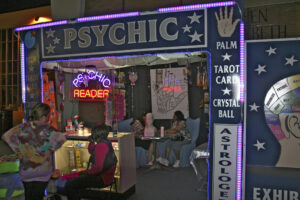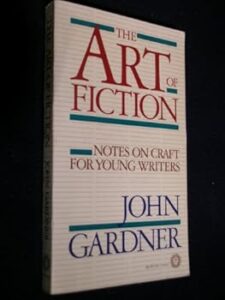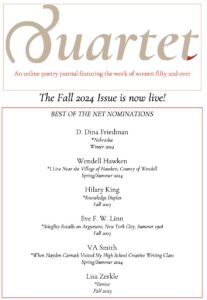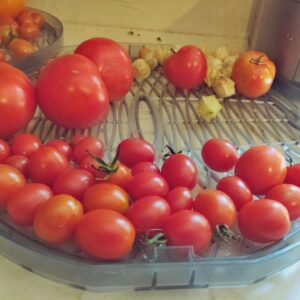Despite the occasional seduction of signs advertising $5 palm readings, I’ve always been afraid of fortune tellers.

Gunnshots (Don), CC BY-SA 2.0 <https://creativecommons.org/licenses/by-sa/2.0>, via Wikimedia Commons
If there’s going to be bad news, I don’t want to hear it. Just as I don’t want to read disturbing news stories with clickbait headlines. Heck, I don’t even want to watch my teams lose at sporting events. Last week, I walked away from the Mets/Phillies game when the Phillies threatened the Mets’ slim lead in the 9th inning. If it was going to be bad, I didn’t want to watch.
So, I totally understand my father when he says he doesn’t want more medical testing to explore what might be causing his occasional bouts of delirium and physical instability.
Because he’d rather spend what remains of his life in ignorant bliss. He’s 93. He’s had a good life. He doesn’t want his remaining time to be consumed with thinking there may be something wrong with him.
And for the moment, the delirium has subsided. He’s feeling ok, happy to do his puzzles and watch the Mets and Yankees in the playoffs.
As I’ve continued my fledgling practice of mindfulness meditation, I’ve seen a lot of my stress ebb away as long as I can eschew the nagging of my to-do list and keep myself in the present moment. There are some definite perks in stepping off the worry treadmill and refraining from obsessing over the great unknown. Even if there’s an aspect of “flying by the seat of my pants,” when situations encroach that demand my attention, I’m convinced I make my best decisions in the reality of the present rather than to adapt to a foggy future.
And–at least for me–I feel the same way about trying to plot the trajectory of a novel (or even a short-story). I could probably save myself a lot of time if I had a better idea of where I was going when I sit down in front of the blank page or the blank screen, but the reality is I have no idea what my characters are going to do until they’re faced with the situation. Sometimes they make the “wrong” decisions and the story goes nowhere. And–unlike most of life–I get to backtrack and revise. But if I try to gauge the ending of a story before paying close and careful attention to the beginning and the middle, I end up with flat and predictable characters and outcomes, instead of carefully nuanced and surprising twists.
This is not to diss outlines for those people who find them useful. But I would caution people not to be too attached to their initial ideas. Give your characters free agency and they will surprise you. As John Lennon said, “Life is what happens to you while you are busy making other plans.” Tomorrow never knows.

Tony Barnard, Los Angeles Times, CC BY 4.0 <https://creativecommons.org/licenses/by/4.0>, via Wikimedia Commons
So, I’ll keep trying to cherish the present–and savor the discrete precious moments of the last few days in New York watching baseball games with my parents, even as they might nod off into dreamland, and even if–unlike me–they’re resilient enough to watch when their teams are losing.



 And this, I think, is a good lesson for fiction writers–even if the “lies” (which I’d prefer to call “stories” in this context are not intended to do harm or be taken as factual. Writer John Gardener in The Art of Fiction writes about the importance of creating “a continuous unbroken dream” where the reader is totally ensconced in whatever reality the writer has created–kind of like a virtual reality experience that’s dependent on words, rather than 3-D classes.
And this, I think, is a good lesson for fiction writers–even if the “lies” (which I’d prefer to call “stories” in this context are not intended to do harm or be taken as factual. Writer John Gardener in The Art of Fiction writes about the importance of creating “a continuous unbroken dream” where the reader is totally ensconced in whatever reality the writer has created–kind of like a virtual reality experience that’s dependent on words, rather than 3-D classes. When I wrote my collection of short stories, I wanted to emphasize how immigrants are everywhere, just as they were everywhere in my childhood. Some of my stories are overtly political, drawing on my experiences as an activist, but most of them aren’t. They’re simply tapestries woven with real people–some of whom simply weren’t born in the U.S. I write about humans in situations with issues. That’s what’s always grabbed me in fiction–the ways we struggle to love the world, each other, and ourselves.
When I wrote my collection of short stories, I wanted to emphasize how immigrants are everywhere, just as they were everywhere in my childhood. Some of my stories are overtly political, drawing on my experiences as an activist, but most of them aren’t. They’re simply tapestries woven with real people–some of whom simply weren’t born in the U.S. I write about humans in situations with issues. That’s what’s always grabbed me in fiction–the ways we struggle to love the world, each other, and ourselves.



